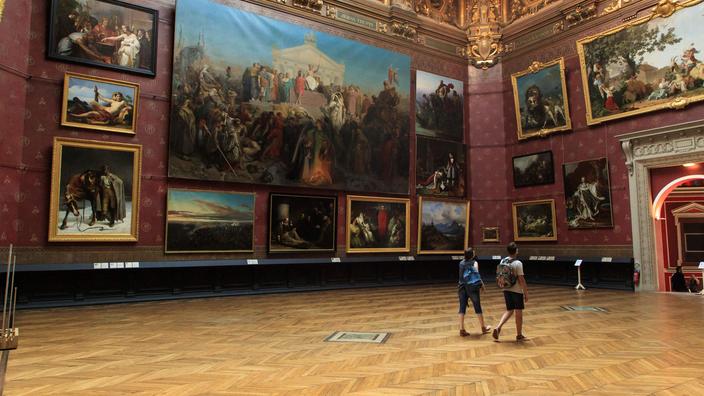Going to the movies is less risky than going to school.
This is the conclusion of a study conducted by Professor Martin Kriegler of the Technical University of Berlin and engineer Anne Hartmann.
Their work, published on February 10, aims to assess the risk of Covid-19 contamination in various closed public places.
They focused on aerosol contamination - which constitutes the vast majority of contaminations -, taking into account the degree of application of barrier gestures (wearing a mask and social distancing in particular).
As a result, cultural places - theaters, cinemas and museums - are the public places least at risk.
Read also: Covid: do “cultural places” represent a health risk?
The two scientists calculated the R0, or reproduction number of the virus, the average number of individuals that an infected person can infect.
If the effective R is greater than 1, the epidemic develops;
if it is less than 1, it regresses.
The R0 is 0.5 in cultural places requiring the wearing of a mask and a 30% gauge.
For comparison, the R0 is 1 in a supermarket or restaurant, 1.5 in an open plan or train, and 3 in a school.
This means that the rate of reproduction of the virus is 6 times higher in a school than in a theater.
Silent audience
According to the tandem author of this study, cultural places owe this low risk of contamination to the fact that spectators or visitors speak relatively little there, which reduces the production of potentially infectious droplets.
Social distancing measures are relatively easy to apply there.
Access to these places may also be conditioned by the presentation of a negative test.
In the German daily
Spiegel
, Martin Kriegel believes that in the presence of “
well thought out and consistent hygiene procedures, some public places could reopen.
And that, in other situations, it is necessary to further reduce contact ”
.
To read also: "We have no visibility" on the reopening of cultural places, according to Roselyne Bachelot
One downside, however: this study does not take into account the new variants of the virus, which are more contagious.
The British variant is around 50% more contagious than the historic virus.
"
The appearance of variants deprives us of visibility
", deplored the Minister of Culture Roselyne Bachelot on January 19, during her hearing on the consequences of the health crisis for the cultural sector at the Committee for Cultural Affairs and education of the National Assembly.
In an open letter published Monday, March 1 in the columns of Le
Parisien
, around twenty organizations representing the cultural sector have nevertheless asked the Head of State to set up a calendar.
In order to provide for the resumption of a cultural life which died out a year ago now.







